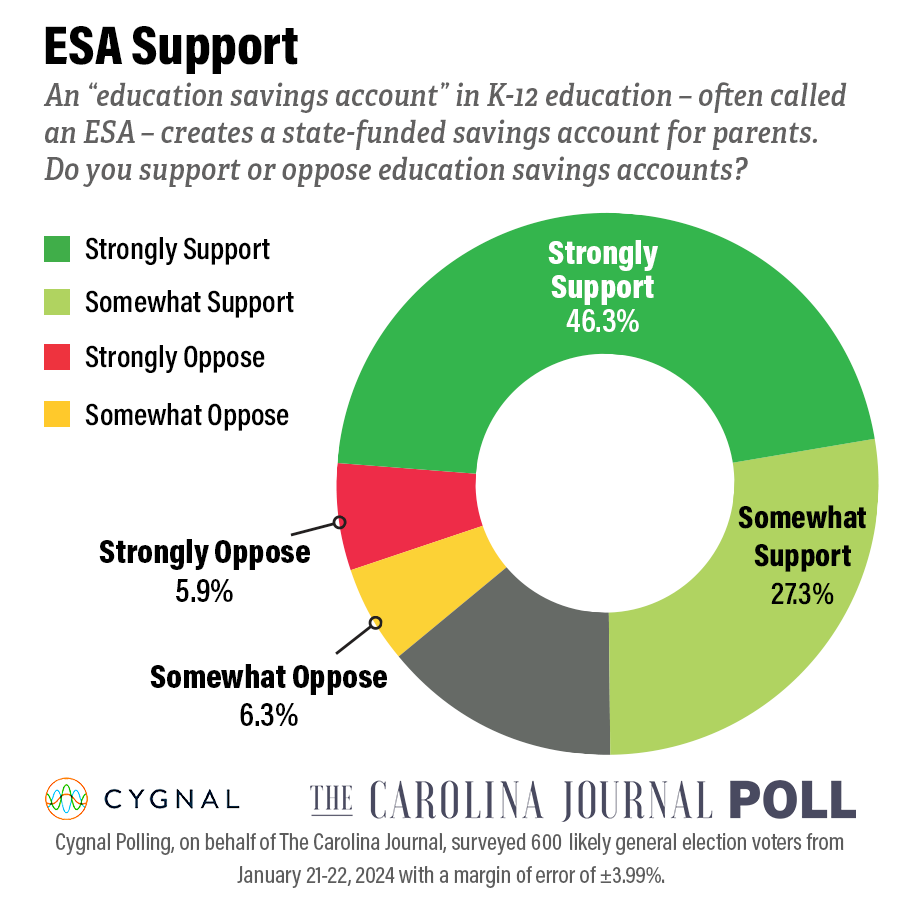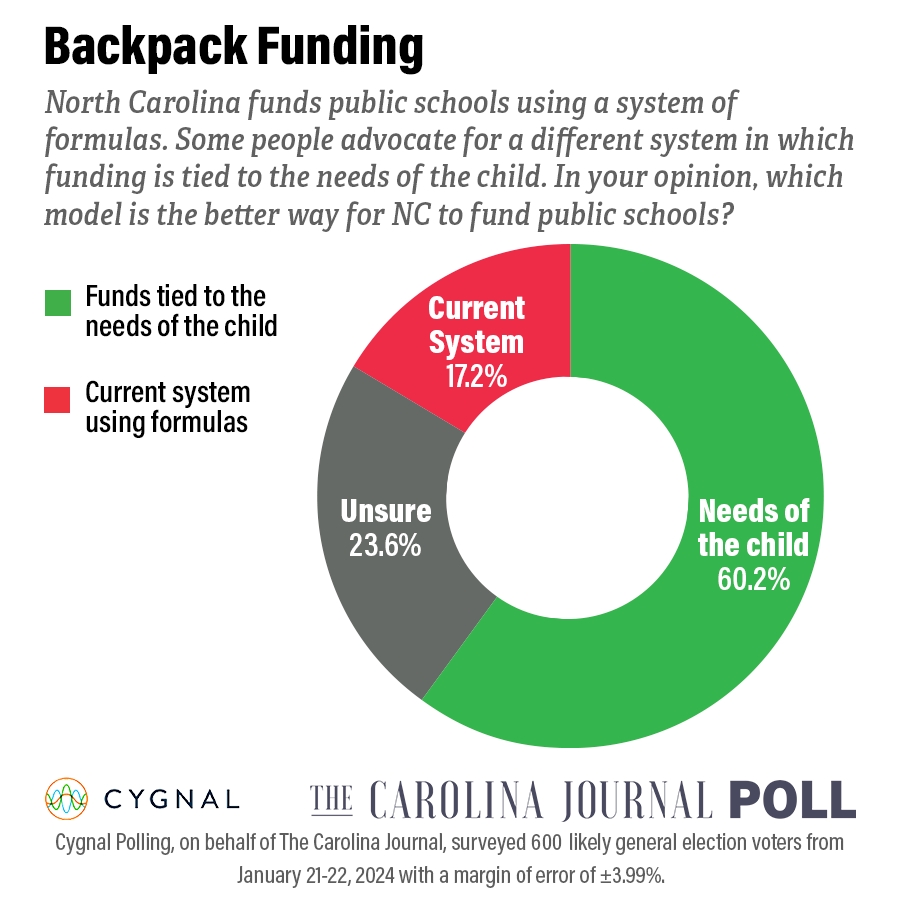Likely voters in North Carolina are in the mood for sweeping education reforms, based on the latest results from the Carolina Journal poll released Jan. 26.
The results dropped during National School Choice Week and were first presented at the John Locke Foundation’s Carolina Liberty Conference. The poll was anchored by a finding that 48% of likely voters are dissatisfied with the quality of K-12 education in NC, compared to 31% who are satisfied. Seventy-seven percent say that parents are best suited to decide where a child should attend school, compared to 14% who say local school boards.
On the topic of school choice, likely voters want more opportunities. The poll put support for the Opportunity Scholarship Program at 64% in support and 26% opposed. Beginning this year, Opportunity Scholarships are available to all families to help defray the cost of a private school education.
There is even more significant support for parent-directed Education Savings Accounts, where families are given a lump sum to be used for a variety of approved educational expenses, including school tuition, tutoring, online education programs, therapies for students with special needs, or textbooks and other instructional materials. Seventy-four percent of likely voters support ESAs and just 12% are opposed, according to the poll.

Likely voters were also queried for their opinion on the method by which the state funds public schools. Currently, resources are allocated based on a funding formula, but education reform advocates have suggested that tying funding to the needs of each individual child is a better approach. Sixty-percent favored this type of “backpack” funding, while 16% support the current funding formula and 24% are unsure.
“The strong backing for school choice programs like the Opportunity Scholarship and ESAs in our state is not just a trend — it’s a call to action for an education system that values choice and individuality,” said Carolina Journal publisher Donald Bryson. “These results are a clear signal: North Carolinians want an education system that puts parents and students in the driver’s seat.”

Charter schools enjoy the support of two-thirds of NC likely voters. But the poll also revealed voter confusion over the structure and funding sources for charters. For example, 40% of likely voters incorrectly replied that charters are not public schools, while 45% correctly identified the schools as public. What’s more, 27% incorrectly said that charters may charge tuition.
On the question of how members of the NC State Board of Education are appointed, 64% would support a shift from the current system to one where members are elected by voters.
Of note among non-education issues covered by the poll, it found that Republicans have regained some ground on the generic legislative ballot. Forty-six percent of voters would pick a GOP candidate, while 40% would choose a Democrat.